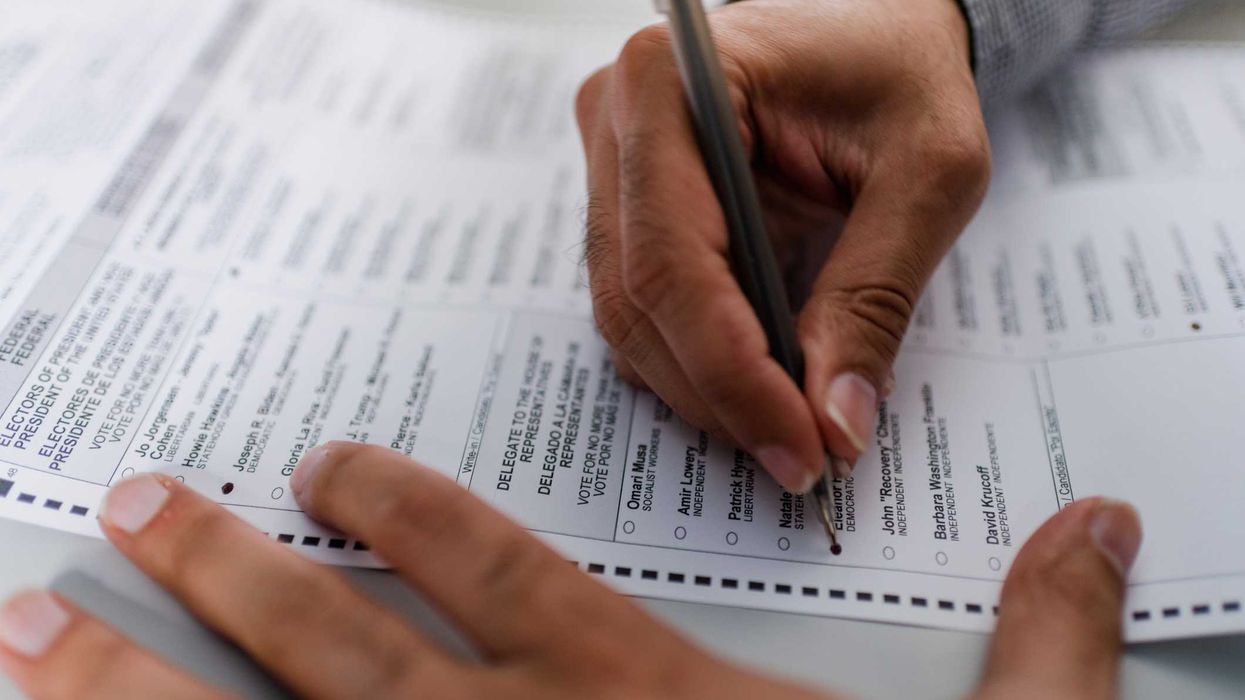As Richmond’s General Registrar and Electoral Board, our shared responsibility is to ensure that elections in our city are conducted securely, accurately, transparently, and with equal access for all voters. We know firsthand how much work goes into building and maintaining public confidence in the process. From keeping voter registration lists accurate, to conducting risk-limiting audits, to training poll workers and ensuring ballots are handled securely, election officials across Virginia dedicate themselves to making sure every eligible vote is counted and every election is run with integrity.
And yet, the hardest part of election administration often isn’t the logistics; it’s voter confidence. Elections can be run flawlessly from a technical standpoint, but if voters don’t believe the process is fair and legitimate, democracy itself suffers.
Virginia has always been at the heart of America’s democratic story. From the Virginia Declaration of Rights to generations of civic leadership, the Commonwealth has both shaped and wrestled with the meaning of democracy, reminding us that trust must be continually earned, not assumed. That trust allows citizens to cast ballots with confidence, knowing their voices will be heard and respected. With Virginians heading to the polls this November, leaders across the political spectrum have a timely opportunity to reaffirm that legacy.
One way to do so is by embracing the Principles for Trusted Elections. This nonpartisan framework has already been endorsed by Republicans, Democrats, independents, and community leaders across the country. The reason is simple: these principles are about values, not politics. They provide a clear set of standards that define what makes elections worthy of trust.
Elections must be impartial and follow the rule of law. In Virginia, that means maintaining accurate voter registration lists, ensuring equal access for all eligible voters, and administering elections transparently. Campaigns must be free from threats and intimidation. Virginia law protects voters and election workers from coercion, and reaffirming this principle helps preserve voter confidence. Every eligible vote must be counted, and the election process must be protected from interference. Virginia’s use of paper ballots, statutory risk-limiting audits, and strict handling procedures provides strong safeguards, but public awareness of these protections is just as important as the protections themselves. Oversight must also be conducted responsibly. Poll watchers, authorized representatives, and observers all have defined roles under Virginia law, and respecting those boundaries without interference is essential for trust. And once results are certified and all lawful challenges resolved, those outcomes must be respected. Peaceful acceptance of election results is what allows Virginia–and America–to move forward together.
These may sound like basic commitments, but their significance can’t be overstated. When Virginia’s civic leaders affirm them publicly, they strengthen democracy. Standing with colleagues across the aisle shows voters that democracy is first and foremost about shared values, not partisan gain. Election officials already work to uphold these standards every day, but leaders’ visible support helps the public see that commitment more clearly, and encourages citizens themselves to protect and promote trust in elections.
There are simple, meaningful steps Virginians can take to reaffirm this tradition. We have signed the Principles pledge ourselves because we believe election officials should lead by example. Leaders and citizens alike should do the same, joining a growing coalition committed to these democratic values. They should make that commitment public, whether by sharing it on social media or appearing alongside a colleague from across the aisle, to show Virginians that safeguarding democratic elections transcends party advantage. Citizens, too, can play a role by urging their elected officials and candidates to do the same.
The Principles for Trusted Elections are about more than how ballots are cast or counted. They are about honoring a Virginia tradition that has shaped American democracy itself. By standing together in support of these Principles, Virginians can once again show the nation that democracy is strongest when its processes are respected.
As Richmond’s General Registrar and Electoral Board, we carry a shared responsibility to ensure that our elections are conducted securely, accurately, and transparently. The Principles for Trusted Elections reflect the standards that election officials like me strive to uphold every day. By embracing and affirming them now, Virginians can demonstrate that trust in elections is not only possible, it is paramount.
David Levine is the Director of Elections and General Registrar for the City of Richmond, Virginia after previously servingas the office’s Deputy General Registrar from 2012-2014.
Starlet Stevens proudly represents the third generation in her family to serve as an Officer of Election.
Kate Maxwell is an election-law attorney and founder of Maxwell Law PLLC, where she specializes in political and electionlaw.
Joyce K. Smith serves as Secretary of the Richmond Electoral Board, bringing over four decades of public service to herrole.

















 A woman prepares to cast her vote on May 4, 2025 in Bucharest, Romania. The first round of voting begins in the re-run of Romania's presidential election after six months since the original ballot was cancelled due to evidence of Russian influence on the outcome. Then far-right candidate Calin Georgescu surged from less than 5% days before the vote to finish first on 23% despite declaring zero campaign spending. He was subsequently banned from standing in the re-rerun, replaced this time round by George Simion who claims to be a natural ally of Donald Trump.Getty Images, Andrei Pungovschi
A woman prepares to cast her vote on May 4, 2025 in Bucharest, Romania. The first round of voting begins in the re-run of Romania's presidential election after six months since the original ballot was cancelled due to evidence of Russian influence on the outcome. Then far-right candidate Calin Georgescu surged from less than 5% days before the vote to finish first on 23% despite declaring zero campaign spending. He was subsequently banned from standing in the re-rerun, replaced this time round by George Simion who claims to be a natural ally of Donald Trump.Getty Images, Andrei Pungovschi

Trump & Hegseth gave Mark Kelly a huge 2028 gift